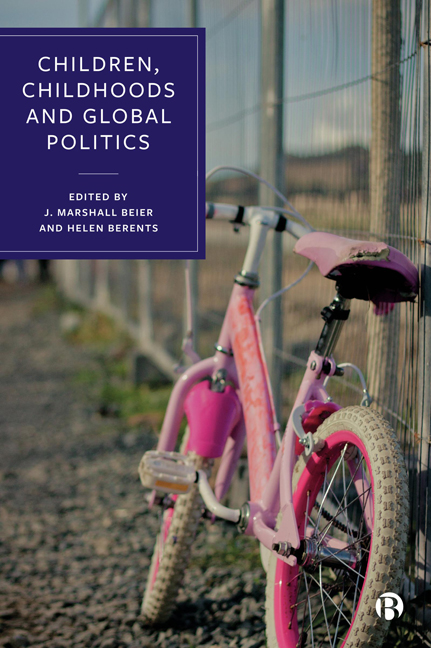1 - ‘Anchor Babies’ and ‘Imposter Children’: Childhoods’ Representations in Global Migration Politics
Published online by Cambridge University Press: 03 April 2024
Summary
Introduction
‘Children shape global politics’, reflected Lee-Koo (2020: 22). This chapter explains how different representations of migrant children shape global migration politics. In the last decade, children became more visible in migration/refugee studies. Different categories of migrant children, including unaccompanied children (those that cross an international border alone), separated children (those that cross an international border accompanied by an adult that is not their legal guardian), and children left behind (those that remain in their origin countries when their caretakers migrate), were employed to study the movement of children across borders.
Children, generally defined as people under 18 years old in the United Nations Convention on the Rights of the Child (UNCRC), have rights independently of their migration status (right to non-discrimination – Article 2). The Convention also guarantees children’s specific rights connected to migration, such as the right not to be separated from their family (Article 9), the right to have their best interests as a primary consideration (Article 3), the right to family reunification (‘family reunification shall be dealt with by States Parties in a positive, humane and expeditious manner’ – Article 10), and the right to asylum (Article 22). Besides that, human rights courts, including the European Court of Human Rights and the Inter-American Court of Human Rights, have employed the UNCRC in cases involving children to recognize and guarantee their rights.
In a nutshell, international law obliges states to guarantee child migrants’ rights which could mean that the general concept of children (as rights holders) could restrain conservative migration politics. Since children are an internationally protected group and children traditionally perceived as innocent victims that deserve protection (Josefsson, 2017b), states willing to stop the entrance and permanence of child migrants in their territories have to adopt discursive strategies to justify the denial of child migrants’ rights. Lind (2019: 337) explains that ‘children’s rights are increasingly mobilised for governing and controlling, rather than enabling, vulnerabilised migrant children’s territorial presence and mobility’.
In recent years, with the increasing number of children migrating alone, politicians and researchers have started to understand that children are decision-makers in their migration processes and have agency in migration (Bhabha, 2014), which has motivated discourses focusing on child migration.
- Type
- Chapter
- Information
- Children, Childhoods, and Global Politics , pp. 17 - 30Publisher: Bristol University PressPrint publication year: 2023



